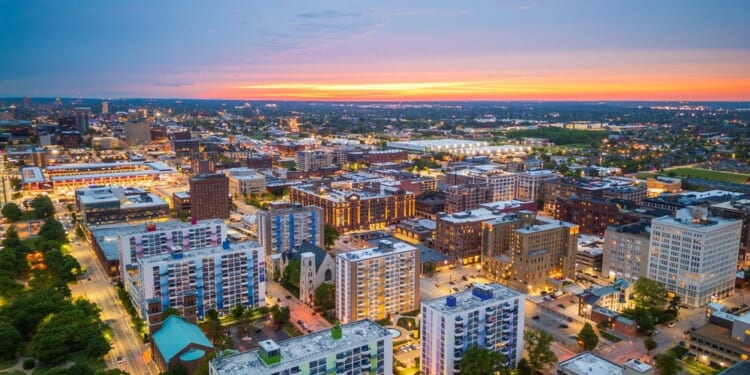My colleagues and I at the Show-Me Institute have for years counseled local and state leaders against a whole host of ideas aimed at increasing their population or growing their economy. From stadium subsidies to convention centers, new taxing jurisdictions to entertainment districts, my colleague David Stokes and I can be counted on to sound like They Might Be Giants: “No!”
And we will admit, it can make us sound like hand-wringing naysayers, always seeing the glass as half empty. (In our defense, we have each spent two decades trying to successfully launch a combined six children into the world. Saying no is a big part of that. Honestly, we are both fun at parties.)
But isn’t securing population and economic growth a basic function of government?
No, it isn’t. A well-run government should not care about growing either its population or its economy.
According to the ideas of Charles Tiebout, cities (and other local governments) compete with each other for residents based on the services the governments offer and the taxes they impose. Cities that provide quality public services at reasonable tax rates will naturally grow, as more people choose to move into those communities. That increased demand will increase housing prices which, combined with zoning rules, generally prevents the city from growing more than its residents want to. Cities that provide poor services at high taxes will see population decline, for obvious reasons.
The forced need for growth—from a government point of view—only becomes necessary when the books are out of balance. Government leaders often push important financial obligations out into the future—hoping to pay tomorrow for what they purchase today. Those ballooning debts on the horizon make them susceptible to all the journeyman consultants and their economic impact chicanery that only makes the situation worse.
Instead, cities should understand their role is to play host to economic activity, not engage in it themselves. The folks who referee the kids’ soccer games at which I spent many Saturday mornings are not players in the game. Nobody asks them to make calls in a way that helps a particular team or drives up the combined score. Quite the opposite—we are alarmed by the idea that a referee may act on a team preference.
To turn planning and spending over to local elected leaders risks overreach and overspending. Overreach because elected leaders want to be seen as bold visionaries dreaming of “what could be” in order to capture the imagination of voters. Overspending because, well, concern about risk is greatly reduced when the consequences of failure are so widely and thinly spread.
As Heywood Sanders, a professor at the University of Texas at San Antonio, said at the Kansas City Library in 2015:
Don’t do what everybody else is doing. Okay? Period. There is an old saying that goes along those lines, “don’t think if you’re doing exactly the same thing that everyone else is doing except not quite as big or good or well, that it’s going to be any different.”
Private actors understand this. Why would they invest in a new convention center for Jefferson City or Springfield if they are just going to be the latest in a long line of cities to do so? How does that make sense or play to either city’s strengths? It doesn’t—so they turn to elected leaders, who are swayed by the possibilities and unencumbered by the risk of investing their own money. Who cares if it works tomorrow—it feels good today!
If a city is to grow, the best our elected leaders can do is to make sure all the obstacles are removed and the rules are clear and evenly enforced. Everything else, including growth and winners and losers, needs to be determined by the players on the field.










